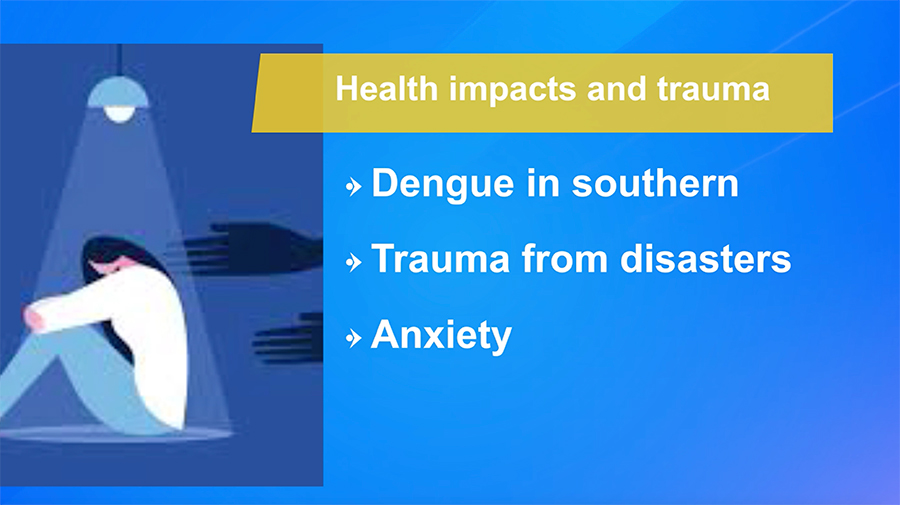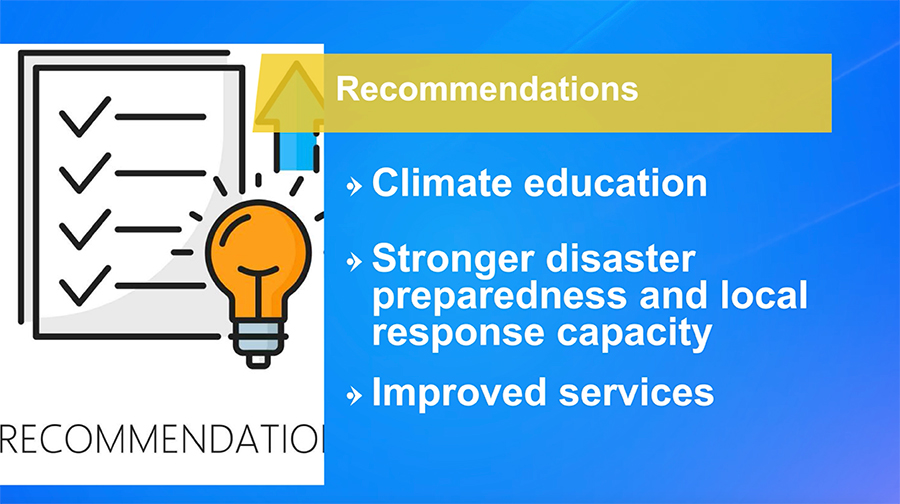 Bhutan is currently drafting its Nationally Determined Contributions (NDC 3.0). It is a climate action plan that each country submits under the Paris Agreement to reduce greenhouse gas emissions and adapt to the impacts of climate change. And this time, voices from the youth will also be included.
Bhutan is currently drafting its Nationally Determined Contributions (NDC 3.0). It is a climate action plan that each country submits under the Paris Agreement to reduce greenhouse gas emissions and adapt to the impacts of climate change. And this time, voices from the youth will also be included.
More than 1000 students from six districts were engaged in youth climate consultation.
 One of the key findings was the disruption of education caused by seasonal flash floods and landslides, affecting access to schools.
One of the key findings was the disruption of education caused by seasonal flash floods and landslides, affecting access to schools.
 Some focused on water, sanitation, and hygiene, with students reporting missed classes due to inadequate facilities.
Some focused on water, sanitation, and hygiene, with students reporting missed classes due to inadequate facilities.
 Psychological distress from disaster exposure and lack of preparedness in schools also emerged as a concern.
Psychological distress from disaster exposure and lack of preparedness in schools also emerged as a concern.
 In southern regions, health impacts such as dengue and trauma from disasters were also highlighted as causes of anxiety among students.
In southern regions, health impacts such as dengue and trauma from disasters were also highlighted as causes of anxiety among students.
 Among the key recommendations were the integration of climate education, stronger disaster preparedness and local response capacity, and improved services linking climate impacts to physical and mental wellbeing. Student representatives presented over 22 recommendations.
Among the key recommendations were the integration of climate education, stronger disaster preparedness and local response capacity, and improved services linking climate impacts to physical and mental wellbeing. Student representatives presented over 22 recommendations.
Euthra Tashi Lhazin, a student representative, said, “Youth is important in the fight against climate change because we youth have to face its long-term consequences, and we bring fresh perspectives, innovations and solutions that can challenge climate change, and our voices raise awareness, and we can help leaders hold them accountable for it.”
Tashi Namgay, another student representative said, “Practical learning is crucial for youth to understand climate change because this approach allows youth to understand climate change in real life and increase their understanding and sense of responsibility.”
Rushnan Murtaza, the UNICEF Representative to Bhutan, said, “Achieving these goals requires the active participation of all segments of the society, including children and youth, who together make up more than 40% of the country’s population.”
NDCs play a crucial role in achieving the objectives of the Paris Agreement, particularly the target to limit global warming to well below 2°C, ideally to 1.5°C.
Devika Pradhan
Edited by Tandin Phuntsho









